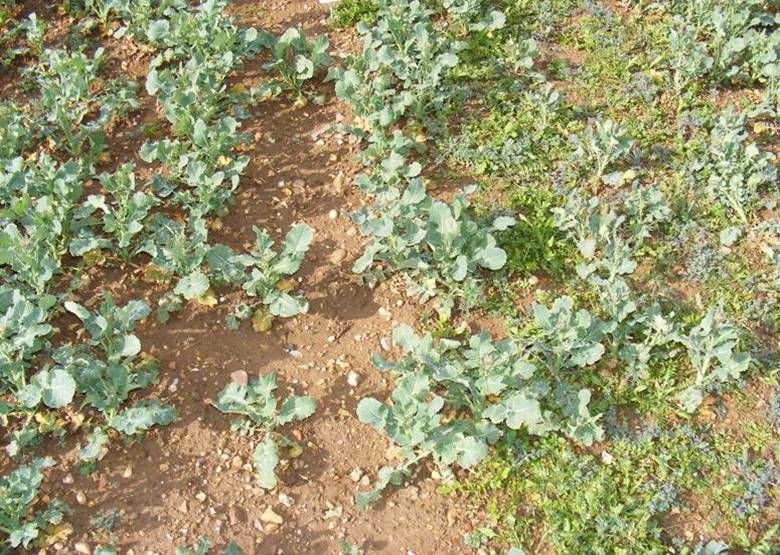
Cost-effective and early weed control in winter oilseed rape is crucial to both yield and gross margins and farmers should be thinking forward to which pre-em herbicide they need to use on their crop this autumn, according to Richard Elsdon, Technical Manager for United Oilseeds.
"Hindsight is a wonderful thing, but looking back over last autumn, we can certainly learn some lessons about getting establishment right and getting the best weed control we can afford," says Richard.
He cited one farmer customer who held off using a pre-emergence herbicide in his rape last year, as he was uncertain whether it would survive the winter. "Despite being backward, the crop did survive but was obliterated by poppies and only produced a yield of a few hundredweights per acre. On the other hand another farmer in Berkshire did use a pre-emergence herbicide, even though his crop was very small going into the winter, and he has just harvested a very high yielding crop, which is weed-free. The critical difference between these two scenarios was effective, broad-spectrum weed control. In my view the returns from using the best pre-em herbicide will always be highly significant."
Richard Elsdon acknowledges that some farmers may consider pre-emergence coformulated herbicides to be expensive, but even accounting for their cost, he points out that winter oilseed rape can produce excellent gross margins. "According to our recent forecasts for harvest 2010, a 3.6 t/ha crop of rape will produce a healthy gross margin of around £440/ha."
He continues that the only other crop that can outperform this is a first wheat. "A second wheat is expected to produce a Gross Margin of around £400/ha, winter beans £270/ha and winter barley £370/ha. So winter oilseed rape, despite high input costs, does perform financially."
Owen Cligg, Trading Manager for United Oilseeds, adds that on balance the oilseed rape market is bullish and that growers should anticipate better prices at harvest next year. "This is despite an anticipated European rape harvest of around 20 million tonnes, up from 18.2 million tonnes last year. Developments in the US soya markets are driving prices higher."
Will Reyer, Oilseed Rape Product Manager for BASF, supports the view that it is not the time to revert to cheaper and less effective weed control strategies. "Some farmers may be tempted to revert to the old fashioned, simpler approach to weed control by applying just metazachlor. But with the much more complex weed spectrum in rape, the legacy of the many dirty crops this harvest and the essential requirement of getting your crop off to a good start, this will be a false economy."
"In the past some farmers mixed metazachlor with trifluralin, but with this active no longer available, metazachlor on its own will be much more exposed and expectations of weed control should not be too high. It makes sense, both economically and agronomically, to choose one of the more advanced herbicides suited to your particular weed problem and capable of giving you excellent levels of weed control."
Will points out that metazachlor remains central to any weed control programme in rape. "Products such as Novall and Springbok include additional active ingredients which allow them to control a wider range of weeds across more variable conditions. Novall draws on the benefits of quinmerac, adding Cleavers and Poppy activity, while Springbok includes dimethenamid-p which helps especially on Crane’s-bill and Shepherd’s-purse. Shadow contains all three actives, metazachlor, quinmerac and dimethenamid-p and is the most complete solution available."
Will Reyer warns against trimming dose rates of these herbicides. "There may be a temptation to cut herbicide rates in oilseed rape, because of their expense, but doing so will only lead to weeds such as Cleavers, Crane’s-bill and Poppies slipping through. The full recommended doses will give very good control of a wide range of broad-leaved and grass-weeds and rate cutting will only disappoint. It is vital that the rape crop gets off to a good start. Removing weed competition early and effectively is essential in order to grow a high yielding, profitable rape crop."
